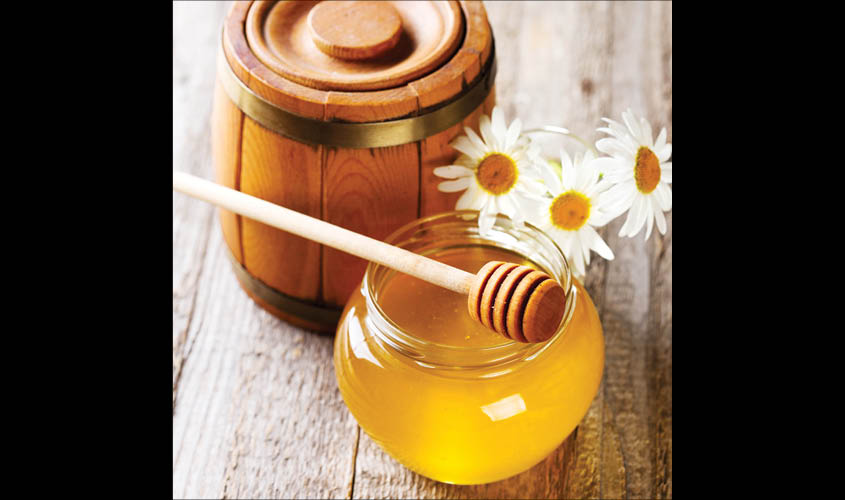Serious doubts have arisen over the purity of natural honey brands sold in the Indian market. Consumer Voice tested 10 well known brands of honey as per the latest standards notified by Food Safety and standards Authority of India ( FSSAI) and other national standards. The test results have raised dark clouds over the purity of natural honey sold in the Indian market. These new standards come in to effect from 1 Jan 2019.
Natural honey is produced by honey bees from nectar of plants which bees collect. Combining with specific substances of their own the bees deposit, hydrate and store it in honeycombs to ripen and mature. 76-80% of honey is composed of natural glucose and fructose, pollen, wax and mineral salts. Honey is often adulterated with added cane sugar, high fructose corn syrup, potato syrups or inferior quality honey with high water content to make undue profit by businesses. These added sugars have a different biochemical pathway than one in natural honey. FSSAI has recently notified new honey standards which enable tests to detect added sugar( known as C4 sugars) and hence purity of honey.
Consumer Voice tested the purity of 10 leading brands: 24 Mantra ,Baidyanath, Dabur, Fresh & Pure, Hitkary, Himalaya, Khadi, Patanjali, Reliance and Zandu. The latest standard notified by FSSAI is able to detect added sugar. It specifies that C4 sugars cannot exceed 7%. These tests in a government-owned NABL accredited lab found that only Zandu (2.19%) had C4 sugars within prescribed limits. 24 mantra had 12.27%, much above the limit. All other eight brands did not show existence of proteins on the basis of which C4 sugars can be detected. The absence of proteins in these tests signifies that the honey may
not be pure.
Scientific developments have devised new methods to test and beat adulterators. These methods are done using modern test machines and methods. This standard specified three tests for carbon isotopes which can indicate purity of honey. None of the 10 brands conform to all three tests. This has raised a serious cloud over the claim that these brands sell pure natural honey. Except for conformity of these tests all the 10 brands meet other norms specified by FSSAI.
Each of the 10 brands was sent the test results prior to publication by Consumer Voice. Patanjali, 24 Mantra claimed that they do not add sugars. Baidyanath claimed that the C4 tests are recently notified and the test technology is new in India. Himalaya claimed its product complied with international norms.
Dabur challenged the methodology of testing C4 sugars stating that protein data was missing from Consumer Voice tests and without this data C4 sugars can’t be estimated. Consumer Voice defends the lab test results that the proteins were not detected in eight of the 10 brands. Consumer Voice felt that the lab tests were reliable as the analysis method was based on AOAC method which is internationally accepted. Moreover, the lab was NABL accredited and has adequate expertise in the testing of honey. After objections by some brands the lab reconfirmed its results. It has admitted to typographical error which does not change the test results .
Consumer Voice has also informed the FSSAI about the test results. FSSAI appears to have evaluated these results and held discussion with the lab reps and Consumer Voice technical team. A detailed technical discussion has also taken place since the last five weeks between Dabur and Consumer Voice wherein Dabur has called for a joint evaluation of their brand. It’s pertinent to point out that Consumer Voice had tested honey brands four years ago and had found Dabur as the best quality brand. This was before the FSSAI had notified the C4 sugars test. Dabur had used the test results in its advertising and promotion as well and laid claims of superior quality based on tests by Consumer Voice four years ago.
The author is former head and Dean of Faculty of Commerce at University of Delhi
Consumer Voice, which has conducted these surveys, is a 35-year-old Delhi-based consumer organisation , member of Consumers International, London, and specialises in comparative testing of consumer products and services for consumer education. For more, visit www.Consumer-voice.org
Disclaimer: This study was conducted independently by Consumer Voice

